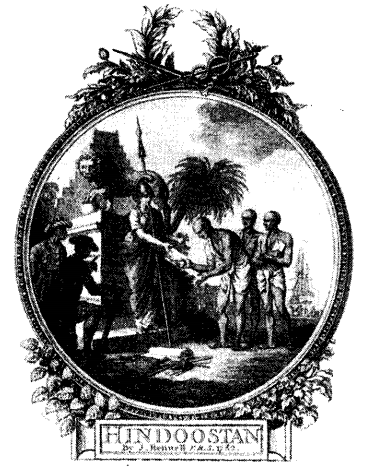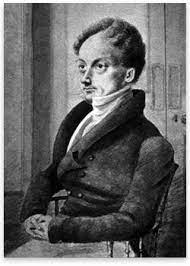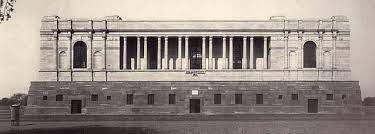 | e-NOTES (1744 [C] ) | ||
| 8th (History) | |||
| How When and Where I | |||
What do Dates Mean to Us?Importance of Dates: History is certainly about changes that occur every time. It is about finding out how things were in the past and how things have changed. As soon as we compare the past with the present we refer to time, we talk of before and after. · All historical questions refer us back to notions of time. But time does not have to be always precisely dated in terms of a particular year or a month. · People in India did not begin drinking tea one fine day; they developed a taste for it over time. There can be no one clear date for a process such as this. Similarly, we cannot fix one single date on which British rule was established, or the national movement started, or changes took place within the company and society. All these things happened over a stretch of time. · why do we continue to associate history with a string of dates | |||
History and PrehistoryThe history of a country is divided into three periods. Ancient, Medieval, and Modern period. Modern period of history is usually considered to begin with the conquest of Indian by the British in the 18th century, extending till India become independent in 1947. The histories written by British historians in India, the rule of each Governor-General was important. These histories began with the rule of the first Governor-General Warren Hastings and ended with the last Viceroy Lord Mountbatten · The dates we select, the dates around which we compose our story of the past, are not important in their own. They become vital because we focus on a particular set of events as important. If our focus of study changes, if we begin to look at new issues, a new set of dates will appear significant. In the histories written by British historians in India , the rule of each governor -general was important . these histories began with the rule of the first Governor -General , warren Hastings ,and ended with the last Viceroy , Lord Mountbatten . It was seemingly never -ending succession of Governor -General and Viceroys.All the dates in these history books were linked to these personalities -to their activities , policies, achievements. It was as if there was nothing outside their lives that was important for us to know. The chronology of their lives marked the different concepts of history of British India. There are some events covered in Modern history of India are: | |||
Economist James Mill Division on Indian HistoryJames Mill and its importance: In 1817, James Mill, a Scottish economist and political philosopher, published a massive three volume work, “A history of British India.” In this he divided Indian history into three periods - Hindu, Muslim and British. We divide history into different periods in order to capture the characteristics of a time, its central features as they appear to us. there is a reason why and how do we periodise a time in History
Mill thought that all Asian societies were at a lower level of civilization that Europe. According to his telling of history, before the British came to India, Hindu and Muslim despots ruled the country. Religious intolerance, caste taboos and superstitious practices dominated social life. British rule, Mill felt, could civilize India. To do this it was necessary to introduce European manners, arts institutions and laws in India. Mill suggested that the British should conquer all the territories in India to ensure the enlightenment and happiness of the Indian people.for India was not capable of progress without British help. In this idea of history, British rule represented all the forces of progress and civilization. The period before British rule was one of darkness. Apart from British classification, historians have usually divided Indian history into three parts ancient, medieval and modern. This division too has its problems. It is a periodisation that is borrowed from the west where the modern period was associated with the growth of all the forces of modernity - science, reason, democracy, liberty and equality. Medieval was a term used to describe a society where these features of modern society did not exist. The British established their control over India and made it a colony. Colonisation is a term that refers to a process in which one country subjugates another and thus brings political, economic, social and cultural changes. " James Rennel was a supporter of British rule in India " justify this statement | |||
Modern AgeFeatures of the Modern Age: The Modern Age was a period of great and sweeping changes. The characteristics features of modern age are | |||
Colonial GovernmentColonialization: The way the British came to conquer the country and establish their rule, subjugating local nawabs and rajas. They established control over the economy and society, collected revenue to meet all their expenses, bought the goods they wanted at low prices, produced crops they needed for export, you will also come to know about the changes British rule brought about in values and tastes, customs and practices. When the subjugation of one country by another leads to these kinds of political, economic, social and cultural changes, we refer to the process as colonization. As the British expanded, the amount of revenue was also increased .so much land revenue became the biggest source of income for the company.At this stage land Revenue settlements were introduced with an aim to legitimize the practice of economic exploitation.Therefore the Zamindari system under the permanent settlement, was introduced in Bengal in 1793 by Lord Cornwallis. large parts of South and West India were put under the Ryotwari system, whereas Punjab , North-West provinces and Awadh came under Mahalwari system. | |||
Administration as source of InformationAdministration produces records: One important source is the official records of the British administration. The British believed that the act of writing was important. Every instruction, plan, policy decision, agreement, investigation had to be clearly written up. Once this was done, things could be properly studied and debated. This conviction produced an administrative culture of memos, noting and reports. The British also felt that all important documents and letters needed to be carefully preserved. So they set up record rooms attached to all administrative institutions. The village tahsildar’s office, the collectorate, the commissioner’s office, the provincial secretariats, the law courts-all had their record rooms. Specialized institutions like archives and museums were also established to preserve important records. Letters and memos that moved from one branch of the administration to another in the early years of the nineteenth century can still be read in the archives. In the early years of the nineteenth century these documents were carefully copied out and beautifully written by calligraphists -that is, by those who specialised in the art of beautiful writing . By the middle of the nineteenth century , with the spread of printing. multiple copies of these records were printed as proceedings of each government department.
| |||
Surveys as source of InformationSurveys become important: The practice of surveying also became common under the colonial administration. The British believed that a country had to be properly known before it could be effectively administered. By the early nineteenth century detailed surveys were being carried out to map the entire country. In the villages, revenue surveys were conducted. The effort was to know the topography, the soil quality, the flora, the fauna, the local histories, and the cropping pattern – all the facts seen as necessary to know about to administer the region. There were many other surveys botanical surveys, zoological surveys, archaeological surveys, anthropological surveys, forest surveys. Calligraphists were experts in the art of beautifully handwriting. In the early years of 19th century, important documents were carefully copied and beautifully written by the calligraphists. Historian derive from surveys | |||
 | |||

Powered by ABHYAS ChatBOT.

What describes you best?

I am a Student
I am a Tutor
I am a School Owner
I want to appear for Govt. Exams

 James Mill
James Mill (The National Archives of India came up in the 1920s)
(The National Archives of India came up in the 1920s)